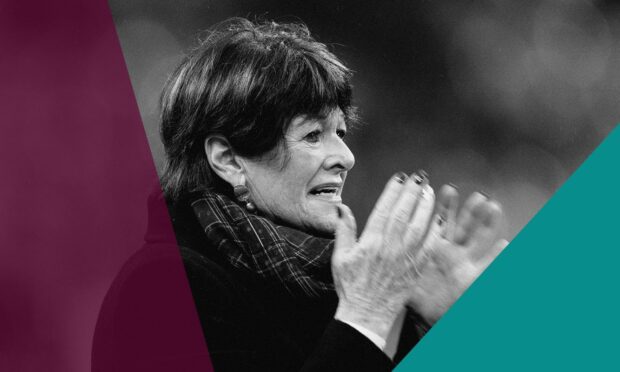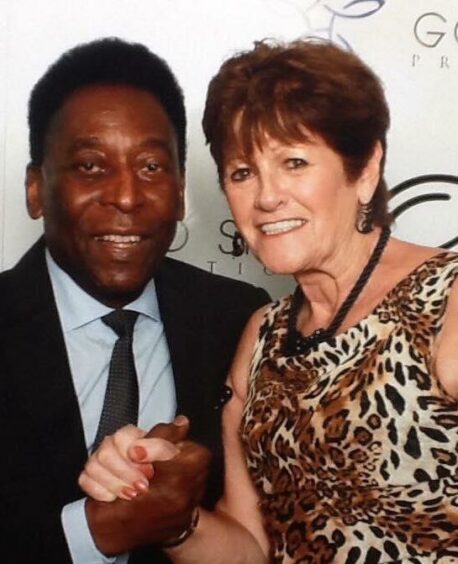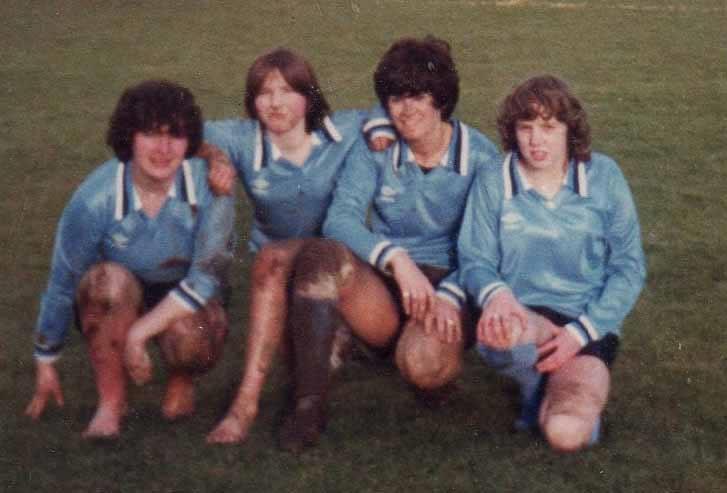Her name has been immortalised in Scottish footballing history.
Trailblazer Elsie Cook has assumed legendary status as the first manager of our nation’s female team.
She not only managed Scotland but was the first secretary of the Scottish Women’s Football Association, devoting much of her life to battling for women players to have the same rights and respect as men.
‘We can’t let them win’
Elsie was gutted by our findings, which showed the ongoing harassment still facing some players and fans.
Our survey among players, fans and officials shows nearly 70% of people surveyed had experienced or witnessed discriminatory behaviour.
Of 119 participants, 68% have suffered hate – in person and online – just for playing football.
Most of our survey’s respondents were female, under the age of 45, from Aberdeen, Tayside, Fife, Angus, the north-east of Scotland and the Highlands.
The 75-year-old great granny, said: “I would really like to have thought we were past all that sexism and misogyny but sadly we are not.
“You will always get a certain type of man having a go. I think you will sadly always get these misogynists but they aren’t real football fans.
“We have to speak out against them, we can’t let them win.”
Elsie – who once rubbed shoulders with her heroes Pele, George Best and Rod Stewart – said: “Football has even cost me my marriage. My husband was a man’s man and he didn’t like the fact I spent the weekends at the football.
“He said to me ‘it’s me or the fitba’’. I had to take the kids with me to a meeting in Edinburgh and the first point on the agenda was my resignation.
“I couldn’t keep up my involvement with the football and they thanked me and gave me an award. I sat back down with the girls and then the appointment of the Scotland manager was raised.
“Somebody shouted ‘we want Elsie to do it’ and that was it, I was elected. I had to go home on the train and tell my husband. I couldn’t even feel proud. I was terrified.
“He was at the kitchen sink. He asked me if I resigned, I said ‘I did but I’ve been appointed Scotland manager’.
“He never said a word and just went back to the TV and watched Kojak. We eventually split up in 1981.”
‘It feels like a different world now’
Elsie, from Stewarton, East Ayrshire, also spearheaded the women’s national side at a key moment in history – the first international match again England.
In 1972, they met at a friendly match at the Ravenscraig Stadium in Greenock. The historic game was held nearly 100 years after England and Scotland met in the first men’s international.
Ravenscraig was the venue due to a longstanding ban by the Scottish Football Association (SFA) on women’s use of professional pitches.

Elsie’s eldest daughter Lorna, aged four, lead the team onto the frozen pitch with Scotland losing 3–2.
She added: “It feels like a different world now. Back then, people would even say that women could not play as it would damage their reproductive organs and that kind of crap.
“At one point, I was in church and had a minister peering at me from the pulpit, basically saying I was worshipping false idols by playing football.”
Anyone who witnesses sexist abuse, harassment or discrimination, can report it in a number of ways.
You can report discrimination within Scottish grassroots football to the Scottish Football Association.
Or search for Scottish FA Grassroots in Google Play or App store.
Also, the Her Game Too anti-sexism campaign has an anonymous online form.
If you feel the form of discrimination you witnessed either on the pitch or online could be a hate crime, you may also report it to Police Scotland via 101.
Read more from this series
Women in football: Our survey reveals scale of sexist abuse facing those who love the game
Georgia Carter: Online abuse has to be taken seriously for women’s football to grow
Shelley Hague: ‘Football can be a great force for good’
Arbroath Community Sports Club Girls is real labour of love for founder Ellie
Credits
Words and interviews by Sophie Goodwin and Stephen Stewart
Story design by Cheryl Livingstone
Graphics by Carly Gilchrist
Data visualisations by Emma Morrice
Video by Drew Farrell, Kim Cessford and Gregor Aiken


